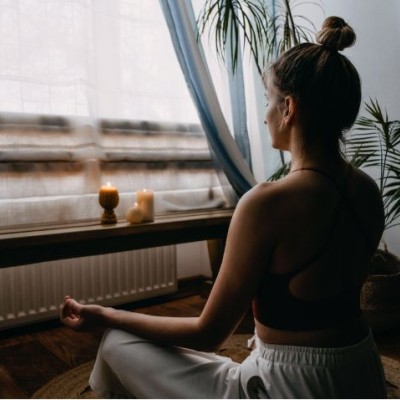Energy saving tips: can blinds keep heat in?

With energy prices and the cost of living skyrocketing in recent months, homeowners across the UK are understandably looking for ways to preserve more of their budget. Statistically, it’s estimated that 13 million homes didn’t turn on their heating during the peak winter cold in 2022, and it’s likely that many will do the same this time around with prices still high.
Coupling this issue is the increasing shift towards eco-friendliness and energy conservation, which is, in turn, making many homeowners consider alternative ways to keep their homes warm, ideally for less money. One of the most overlooked methods of retaining heat in the home is to install high-quality blinds on windows. This winter, upgrading your window fittings with blinds can also be a valuable energy-saving method.
It’s believed that 10% of a typical house’s heat can escape through windows and doors, equating to substantial savings if windows are rightfully sealed and protected with heat-retaining blinds in your property.
This article will outline how blinds can reduce heat loss in your home and keep you cosier this festive period.

The problems of heat loss through glazing
When considering heat lost in a typical house through windows, most of this loss is due to radiation through glazing and air leakages, particularly severe in windows with poor insulation. The remaining loss is due to heat convection through cavities and poor heat conduction through the window frames.
Radiation through glazing occurs when the inner panes of glass absorb the heat that is transmitted to the cooler outside pane via the process of conduction. Traditional double-glazed windows, standard for most UK properties, can offer very little heat retention if the windows are not installed correctly. Subsequently, homeowners may often find themselves turning to heating more often to maintain a comfortable indoor temperature, particularly as rooms may often feel draughty and chillier than usual.
During winter, keeping hot air inside and colder air outside is the aim of the game and uncovered glazing fails to provide adequate insulation. However, provided that you rectify the windows themselves, installing blinds can reduce heat loss and add an extra layer of insulation, which will provide much-needed warmth.
How do blinds help insulate your home?
Installing quality window blinds, skylight blinds or roof blinds creates an effective barrier between the warm air inside your home and the cold air outside. These window blinds also allow plenty of natural light into the property and create exquisite focal points in a home.
Well-fitted window blinds minimise drafts and sun glare, while offering a superb layer of thermal protection. New and independent research conducted and funded by the British Blind and Shutter Association (BBSA), as part of their Blinds Make Better campaign, shows that blinds can reduce heat loss through windows by up to 33%.
You may wish to consider the following types of blinds to install in your home if you are conscious about keeping more heat in:
- Blackout blinds - The tightly woven and layered fabrics in blackout window blinds work together to block out all outside light. In turn, this will also provide a solid layer of insulation by the lack of air pockets in between the fabric layers.
- Thermal blinds - Thermal blinds are specifically made for insulation and heat retention. They’re often made with naturally insulating fabrics like cotton, with many offering a stylish aesthetic to complement your home’s decor.
- Honeycomb blinds - Made with unique cellular structures, honeycomb blinds prevent unwarranted heat transfer and a solid layer of insulation. Similarly to blackout blinds, these blinds provide a thermal barrier due to the trapped air pockets.
- Roller blinds - While these blinds are lighter, roller blinds can offer a surprising and welcome level of insulation by restricting airflow and escape.
- Roof blinds - These heavy-duty blinds are specifically designed for skylights and roof lanterns, often triggered by a remote control. When fitted properly, they can minimise glare and limit heat loss through roofs and cavities. These are great for conservatories too.
During the winter, a good rule of thumb is to keep your blinds closed as much as possible to maximise heat retention. Naturally, there will be times when you need to let natural light in, so keep them open during daylight hours to benefit from the natural solar warmth. Close them again just before the sun goes down.

Additional benefits of installing blinds
In the UK, window blinds, awnings and shutters have long been seen as aesthetically pleasing and decorative items in a home, rather than a way to regulate temperature. However, the benefits of installing window blinds don’t stop here.
As well as keeping your house warm and cosy, installing quality window blinds offers other benefits:
- Noise reduction - Thick window awnings and blinds can limit noise pollution from outside and maintain a tranquil, serene environment in the home.
- Glare control - Blinds help to prevent excessive eye strain or sun glare from intense sunlight, making your home’s lighting and ambience feel more uniform and consistent.
- Added privacy - Installing opaque blinds will help you maintain a sense of privacy from the outside world, which is ideal for many homeowners in built-up areas.
- Increased property value - It’s widely believed that installing high-quality window awnings and blinds can enhance a home's value for resale.
- Visual appeal - Fundamentally, they can be a great way to give rooms character and eye-catching elements, complementing your home interior aesthetic smartly.
Which rooms will benefit most from blinds?
Any room with windows can benefit from having blinds installed. Not just as a way to improve their character and appeal, but also for optimal heat retention, you can consider installing blinds in any room. Lounge spaces and living areas that are used frequently will benefit greatly from additional insulation and privacy from high-quality blinds. Living rooms often have larger windows for maximum natural light exposure, so consider installing insulated blinds to offer them better temperature regulation.
Home offices can also benefit by having effective blinds to keep cold drafts and excessive sunlight out. Bedrooms can be even cosier with the installation of blackout thermal blinds, keeping dazzling morning sunlight at bay and maintaining a warmer, cosier room for improved rest. As bathrooms and kitchens sometimes steam up with excessive temperature fluctuations, they can be treated with smart waterproof and insulating blinds to control excessive condensation buildup to keep temperatures more uniform.

Choosing the best blinds for heat retention
With so many blinds on the market, it can be tricky to choose products which will optimally insulate your home for the right price. Some windows, depending on their direction, may lose more heat than others, which would require higher-quality blinds fitted to ensure adequate retention. Some rooms may even require blinds to be made to measure, such as skylights or blinds in garages or conservatories.
Don’t look at the bottom line solely when considering your blinds, as while cheaper blinds may save money upfront, they may offer little long-lasting heat retention and make minimal difference. Opt for blinds with certifications and quality materials, fitted professionally by trusted experts.
Soaring energy costs are concerning many homeowners right now and that’s not surprising. However, proactively stopping unnecessary heat escaping through windows can make a big difference. With the right blinds fitted into your home, you may see a welcome reduction in your bills and better heat retention this winter.
Looking for advice?
If you're looking to let or sell your property, we can help. Get in touch with your local branch or book in for a property valuation.

Contact Us
Got a question, general enquiry or something else?
You may also like



